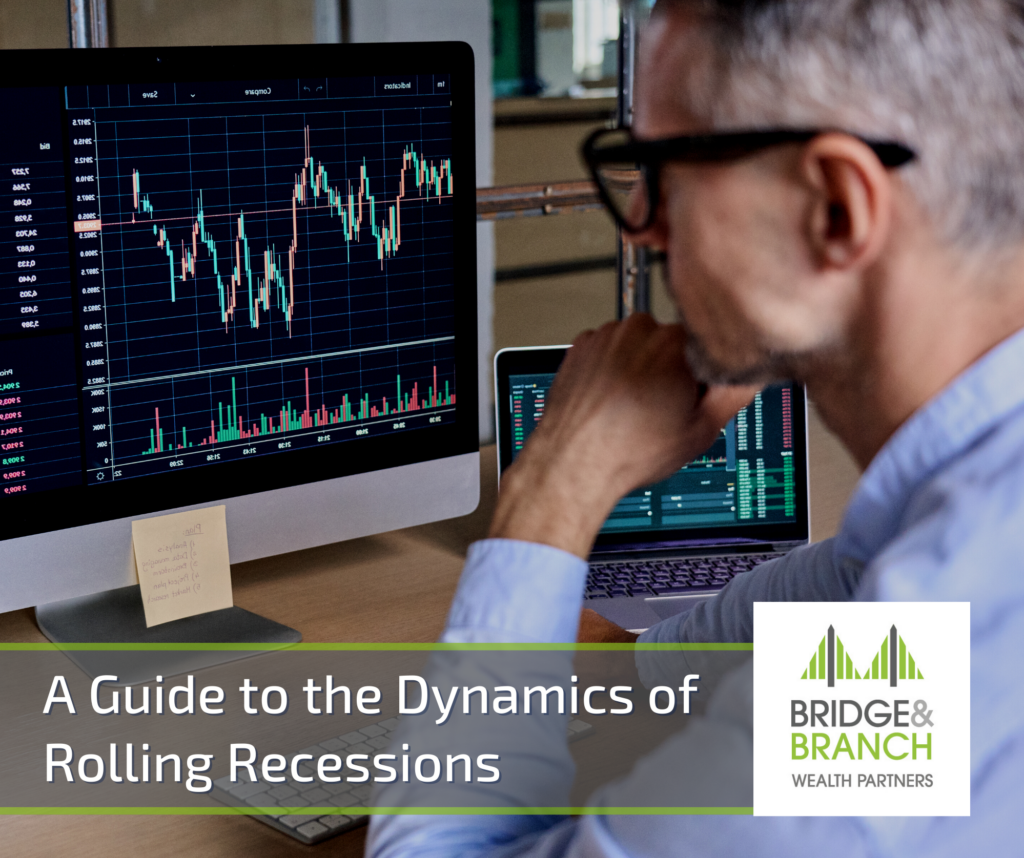Over the past year, the global economy has faced a series of rolling recessions – periods of economic decline that impact specific sectors or regions without bringing down the entire economy. This phenomenon, although concerning, is not necessarily as disastrous as it may sound. It reveals a nuanced picture of economic resilience, courtesy of offsetting pockets of strength. As an investor, understanding these dynamics can help guide investment decisions and strategies.
Understanding Rolling Recessions
Rolling recessions, sometimes referred to as rolling bear markets, are essentially localized downturns that hit specific areas of an economy while others remain robust. These can be industry-specific, region-specific, or even product-specific. They may be triggered by a variety of factors such as regulatory changes, technological disruptions, trade conflicts, or even sector-specific demand and supply imbalances.
For example, if there’s a technological disruption that renders certain jobs obsolete in a specific sector, that sector could experience a recession while others continue to thrive. Similarly, a region heavily reliant on one industry may suffer if that industry faces a downturn, while regions with a more diversified economic base continue to grow.
Offsetting Pockets of Strength: The Economy’s Safety Net
The simultaneous existence of these recessions and robust sectors illustrates the complex, interconnected nature of modern economies. It also underlines an inherent resilience, as healthier areas can help stabilize the economy and prevent a full-blown, nationwide or global recession. These healthier sectors can absorb displaced labor, offer investment alternatives, and maintain overall economic activity.
It’s akin to a natural ecosystem: when one species is in decline, others may thrive and maintain the balance. Similarly, in an economy, when one sector is facing a downturn, others that are more robust can provide the necessary counterbalance.
Navigating Rolling Recessions as an Investor
For investors, rolling recessions offer both challenges and opportunities.
On the one hand, these can lead to portfolio losses if one is heavily invested in a sector or region that enters a recession. On the other hand, they can provide opportunities to buy assets at discounted prices and diversify into more resilient sectors or regions.
Hence, the key to navigating rolling recessions lies in maintaining a diversified investment portfolio, staying informed about economic trends, and being flexible in adjusting investment strategies based on changing conditions. Investors need to keep a pulse on both macroeconomic indicators and sector-specific trends.
Investors can also take advantage of strategies such as hedging, where they make investments designed to offset potential losses in a particular asset. Moreover, contrarian investing, i.e., buying assets that are currently out of favor, can pay off in the long run as markets recover.
Knowledge Matters
While rolling recessions can unsettle investors, they need not trigger undue alarm. In fact, they highlight the resilience of a diversified economy and can present unique investment opportunities. With a good understanding of the economic landscape and sound investment strategies, investors can not only navigate these downturns but potentially turn them into profitable ventures.
As we move forward in this ever-evolving economic environment, remember that knowledge and adaptability are your most valuable assets. Use them wisely to spot opportunities, mitigate risks, and establish your financial resilience, no matter the economic weather.
Important Disclosures
The opinions voiced in this material are for general information only and are not intended to provide specific advice or recommendations for any individual. To determine which investment(s) may be appropriate for you, consult your financial professional prior to investing.
Investing involves risks including possible loss of principal. No investment strategy or risk management technique can guarantee return or eliminate risk in all market environments.
There is no guarantee that a diversified portfolio will enhance overall returns or outperform a non-diversified portfolio. Diversification does not protect against market risk.
Because of their narrow focus, investments concentrated in certain sectors or industries will be subject to greater volatility and specific risks compared with investing more broadly across many sectors, industries, and companies.
This article was prepared by FMeX.
LPL Tracking #1-05374402

